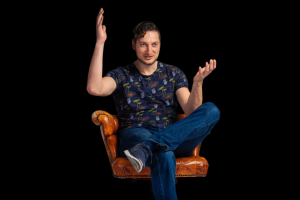I'm interested in doing a private session with MDMA. My intention is to help heal severe trauma I experienced during my childhood. Over the past few years I've been feeling bad symptoms of PTSD in my body. I've tried different therapeutic methods to process this, such as EMDR and ego-state therapy. This has been partially successful, but unfortunately a large part of the trauma has not been processed with these therapeutic methods.
I'm really interested to know if your team has much experience in helping people process childhood trauma during MDMA sessions. If so, do you know which members would be most suitable and experienced in this kind of therapy?
At this point I would recommend you to take a look and see if Ronald or Sascha fits what you're looking for. Ronald is a psychosocial therapist and Sascha is a psychologist. One of the most important factors for succes during these MDMA sessions is a feeling of safety and a good connection with the therapist. This connection enables you to open up more, facilitating deeper therapeutic work and ultimately leading to better outcomes in the treatment of conditions such as PTSD and anxiety disorders. This why it would be good to also look into other therapists and tripsitters like Reineke, Gijs, Marcel or Janneke.
Marcel | Janneke | Ronald | Sascha | Reineke | Gijs
Ronald:
Ronald has guided the most MDMA sessions of our team and uses IFS in combination with the MDMA sessions. This therapeutic approach is based on the premise that individuals have various internal "parts" or subpersonalities, each representing different emotions, beliefs, or experiences. IFS aims to facilitate healing and integration by working with these parts and promoting self-leadership.

While there is limited scientific research specifically exploring the combination of IFS therapy and MDMA, both modalities have demonstrated individual efficacy in treating certain mental health conditions. MDMA-assisted therapy has shown promise in addressing post-traumatic stress disorder (PTSD) and other trauma-related conditions, enhancing emotional processing, empathy, and promoting therapeutic alliance.
The combination of MDMA and IFS therapy may potentially enhance the therapeutic process. MDMA can induce a state of heightened empathy, trust, and relaxation, which may facilitate the exploration and processing of traumatic memories or challenging emotions. Integrating the principles of IFS, such as accessing and working with different parts, during an MDMA session could provide individuals with a deeper understanding of their internal dynamics and foster healing and integration.
More about: Ronald | Reviews about Ronald
Sascha
Sasha combines her experience as a psychologist with her interest in psychedelics to help clients achieve emotional healing and personal growth. She has a master's degree in Clinical Psychology and did basic courses of Cognitive Behavioral Therapy and EMDR. The best thing about Sascha are that her clients usually are surprised by the results they experience.

Marcel
Marcel is not a psychologist by study but has guided more than 2000 psychedelic session of which also quite a few MDMA sessions. If you prefer experience over study background, he might be a good option for you. The MDMA sessions are a bit more focussed on the introspection than maybe other therapist would do. This can be a benefit for those who need an more non-directive approach and is perfect to dive more into theirselves. Besides the intospective parts, exposure therapy is being used too.

Janneke
Janneke's has a loving and caring energy. Some people call her the Mother they never had. This motherly way of guiding sessions has helped a lot of her clients. If a safe feeling is the most important thing for a MDMA session, Janneke always delivers. Janneke is studying applied psychology and this can be beneficial during MDMA sessions besides her caring character.

More about MDMA sessions: